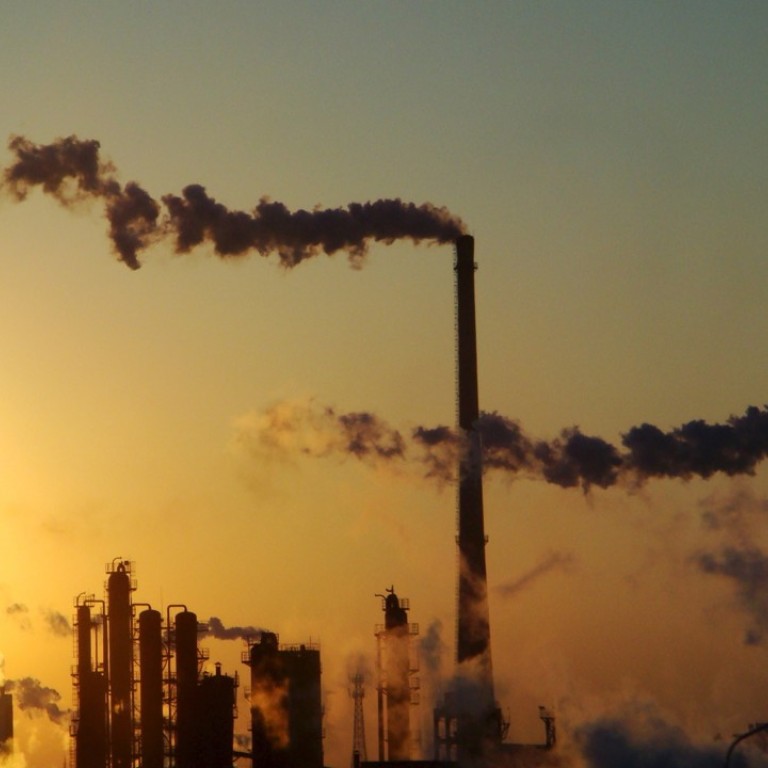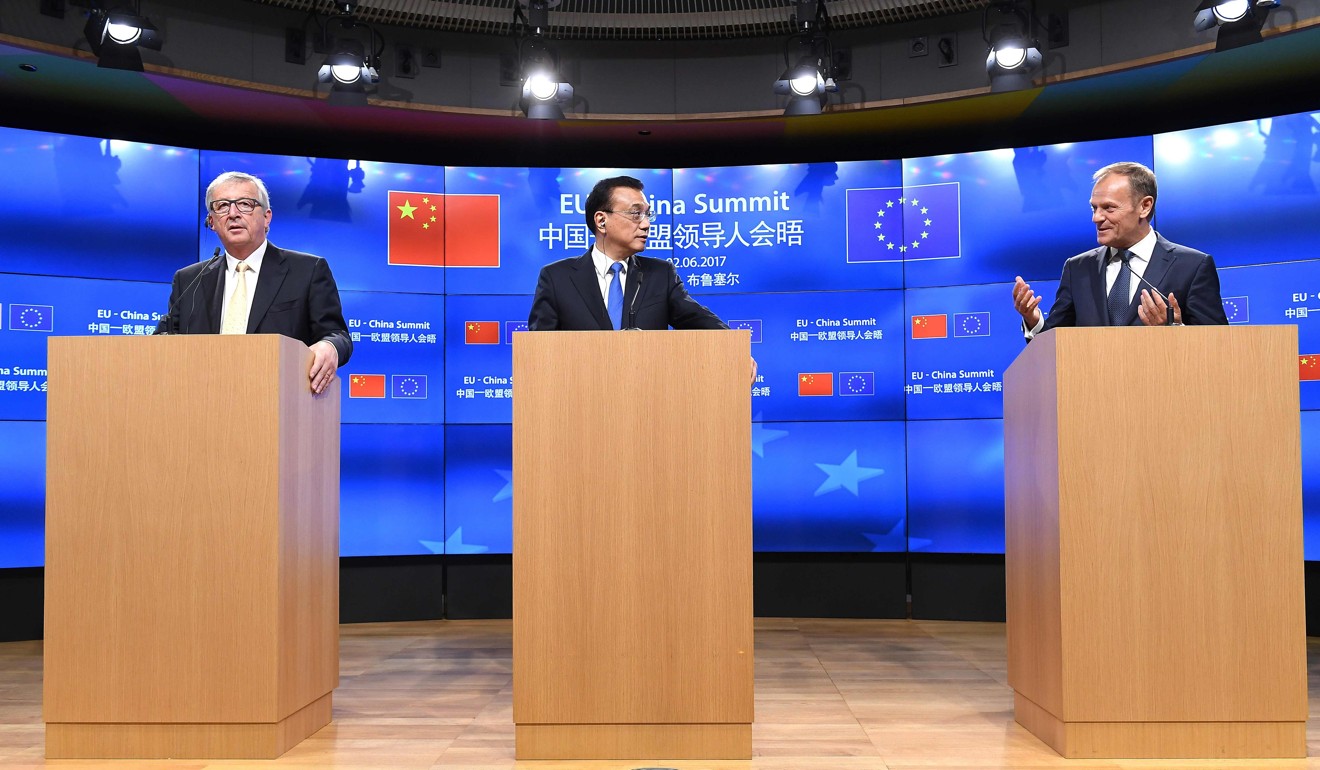
Is there still hope for China’s ‘climate change diplomacy’?
Environmentalists lament Beijing’s failure to bridge differences with the European Union to tackle global warming, but some say there is still a chance
Despite pledges to jointly tackle global warming following President Donald Trump’s decision to pull the US out of the historic Paris climate accord, leaders from China and the European Union were unable to close the gap on issues including Beijing’s market economy status and China’s steel overcapacity at their annual summit over the weekend.
“They were simply unable to narrow differences on other issues and that’s the reality of China’s relations with Europe,” said one source familiar with matter. The source noted that the abandoned statement had been upbeat about the prospects of China-EU cooperation on implementing the Paris deal.
In Barack Obama’s last years in the White House, Beijing and Washington had used the common cause of cutting greenhouse gases as a way to salvage relations mired in mistrust over conflicting security and trade interests.
China’s President Xi Jinping had worked closely with Obama to bridge differences between industrialised nations and their developing counterparts in the lead-up to the Paris deal. Such cooperation was widely seen as one of the few bright spots in often turbulent US-China relations.
This time, an EU-China draft joint declaration limited itself to saying that fighting climate change and promoting a transition to low carbon energy transition “are mutually reinforcing objectives to achieve sustainable, secure and competitive economies”.

Li Shuo, a climate campaigner at Greenpeace’s China office, said the inability of the two sides to issue a joint statement showed Beijing’s relations with Brussels were “very complicated”, casting uncertainty over cooperation on climate change. But he noted that there was still a chance for them to take up the issue.
“The G20 summit in Germany in July is the next window of opportunity and we’ll see if both sides can work together to demonstrate their leadership on climate change,” Li said.
Despite the differences however, climate change remained a bright spot in relations between the EU and China, when compared with other contentious issues including trade, cybersecurity and human rights, according to Wang Yiwei, head of European studies at Renmin University in Beijing.
The EU is China’s biggest trading partner and China is the EU’s second largest, but the bloc’s executive arm, the European Commission, has raised concerns about China’s overcapacity in the steel industry and the limited access EU companies get to China’s markets.
The European Union Chamber of Commerce in China’ latest business confidence survey, released at the end of May, said that many companies continued to face longstanding market access barriers, and were not convinced that this situation would improve over the next five years.
Nevertheless, Wang said, the US decision to pull out of the Paris climate deal had strained Washington’s relations with European countries and created an opportunity for Europe to seek closer ties with China.
He also noted that the EU and China had failed to adopt a joint statement at the annual summit last year, due to clashes over trade differences.
For the EU, “it’s often too difficult to achieve a consensus while it has proved too easy to spoil any deal-making efforts,” he said.

